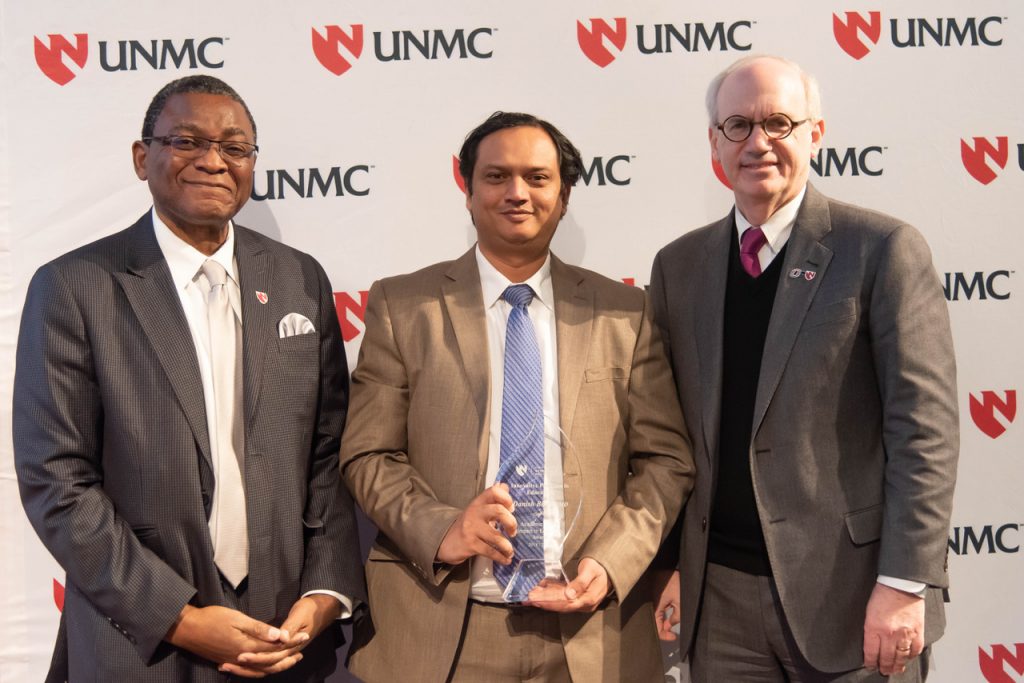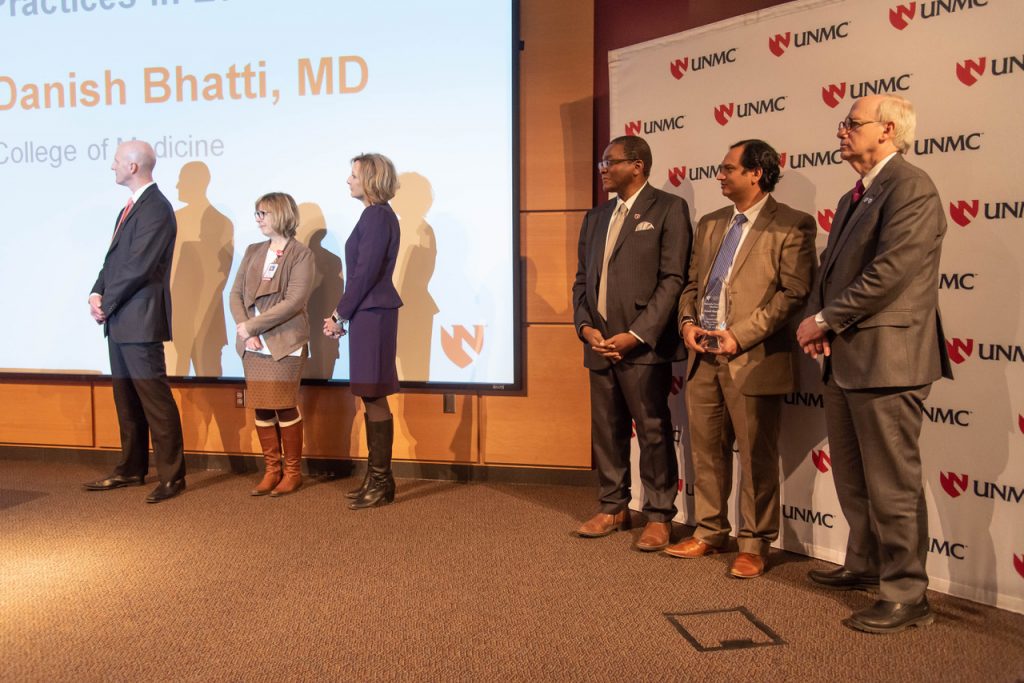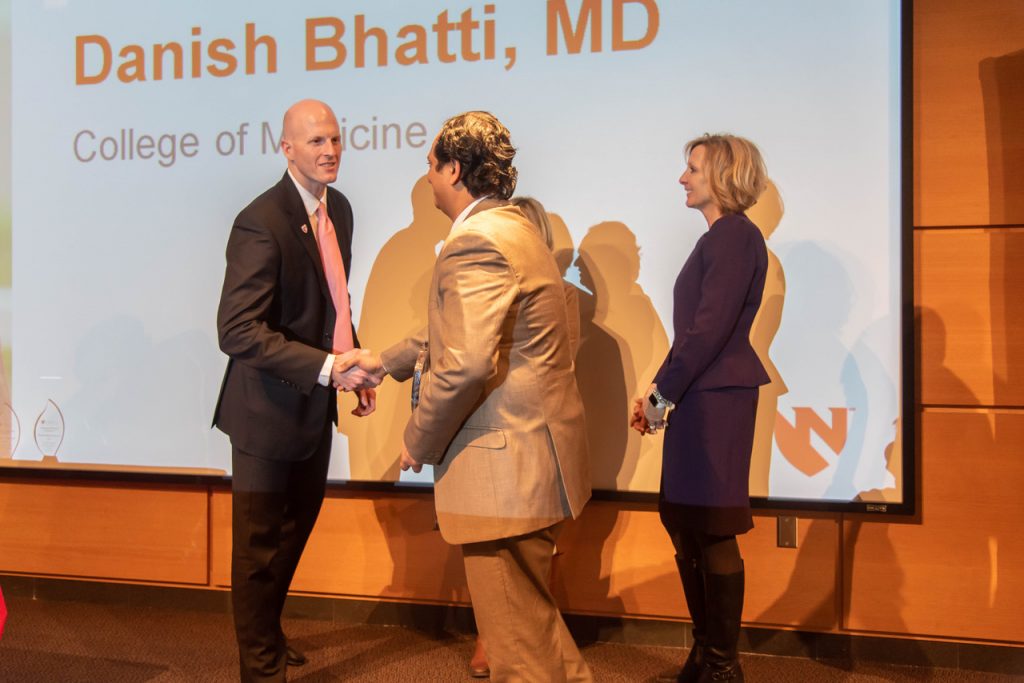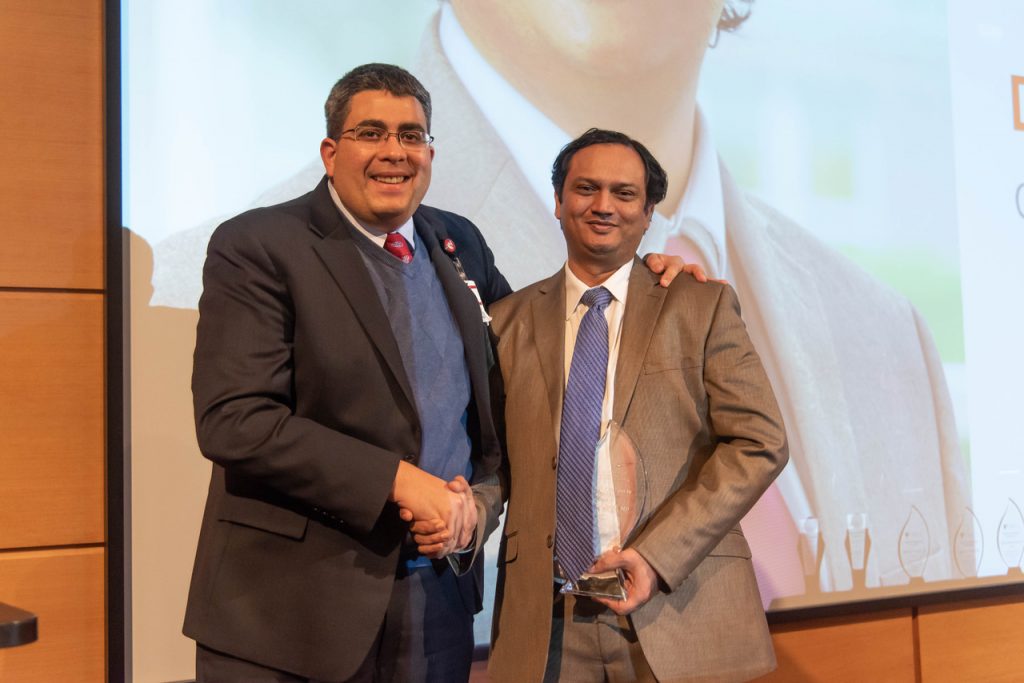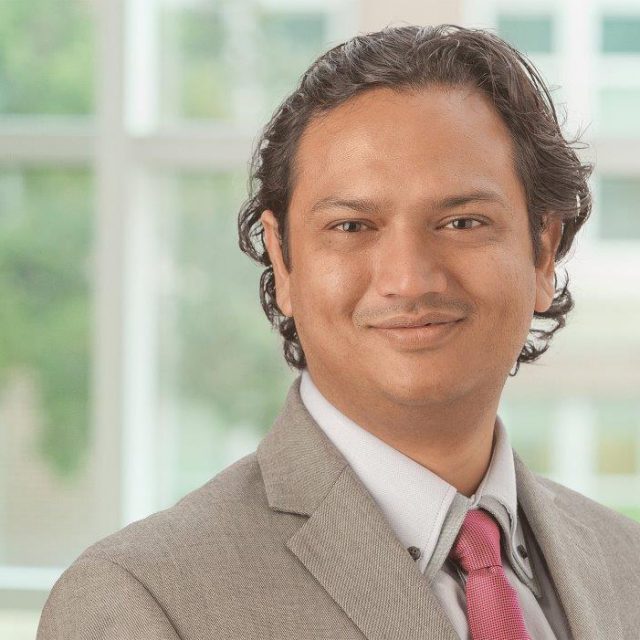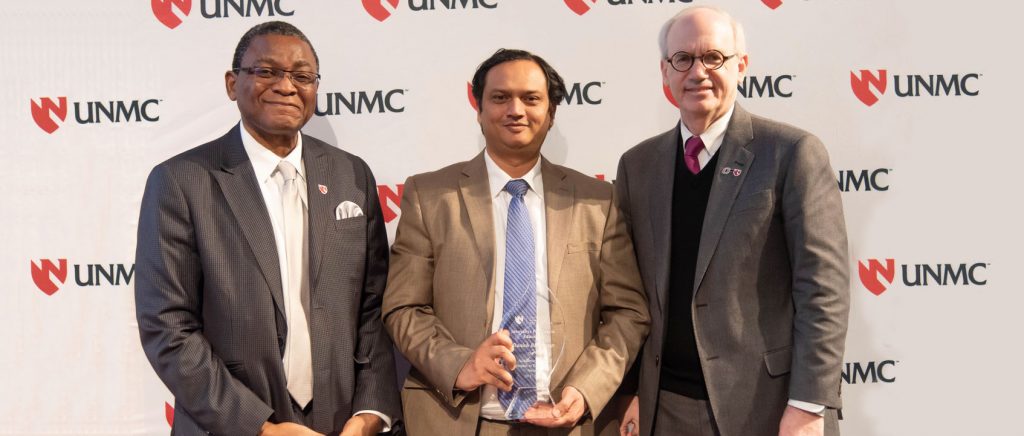
The Office of the Senior Vice Chancellor for Academic Affairs created seven Impact in Education Awards to recognize the dedication and ingenuity of our educators. Award categories include innovation, leadership, mentorship, service, interprofessional, and research.
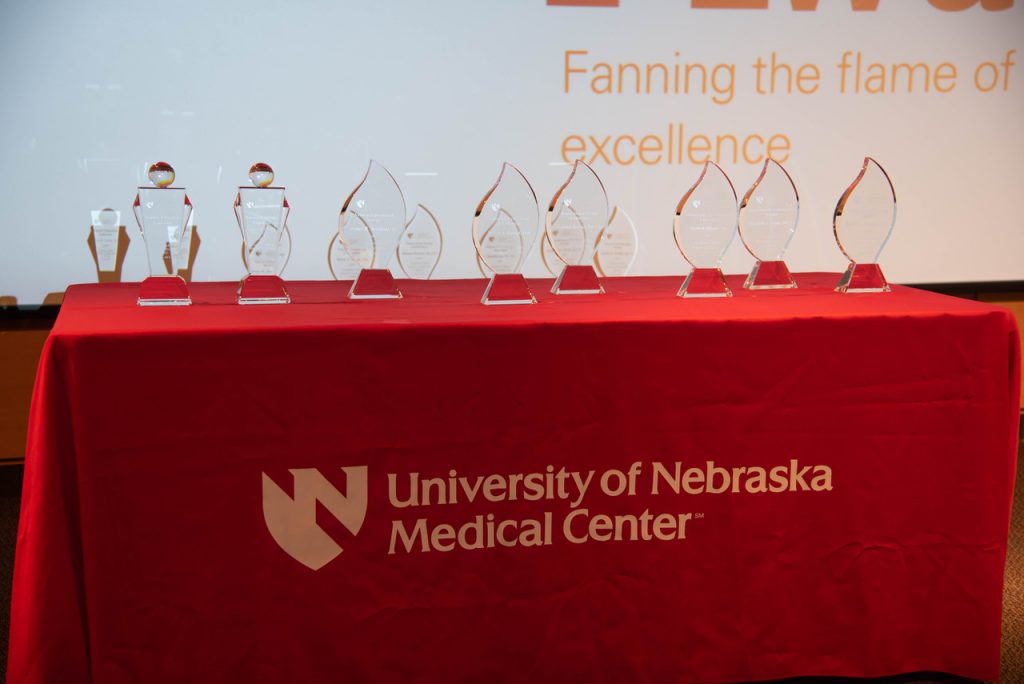
Recipients receive award funds, recognition at the annual award ceremony, and their name displayed on a plaque in the Academic Affairs office. Award funds are to be used for professional development within two years after being awarded.
The ceremony is facilitated by the Interprofessional Academy of Educators.
 Innovative Practices in Education
Innovative Practices in Education
This award recognizes an individual who demonstrates ingenuity, courage, and creativity in teaching, including innovations in use of educational technology, experiential learning, adoption of simulation and/or creative use of the classroom.
- Award Amount: $2,500
- Eligible Candidates: All full-time or part-time UNMC faculty for 2 or more years (excludes UNMC Deans, Institute or Library Directors, Hospital CEO, Vice Chancellors, or Chancellor); previous award winners eligible after 5 years
- Nomination Instructions: Nomination period opens in Fall 2019
Award Recipient:
Danish Bhatti, M.D. is one of the recipients of an Office of Academic Affairs 2018-19 Impact in Education Award. He will receive the Innovative Practices in Education Award.

Danish Bhatti, MD
Department of Neurological Sciences College of Medicine
To Dr. Danish Bhatti, teaching has become a life purpose. He is a firm believer that technology can never replace a great teacher, but modern teaching methods utilizing technology offer great promise for transforming medical learning and trainee well-being.
Dr. Bhatti’s conscious journey as a teacher took off when he attended the Performance in Teaching Series by UNMC Faculty Development. He brought the skills he learned there into residency training and completely reformatted the curriculum and didactic schedule into subspecialty-based courses and worked with course directors, providing guidelines and structure for the subspecialty lectures and course building.
The training also led him to pilot an innovative blended course for the residents in Canvas, a first for Neurology. This five-week course included theme-based weekly online modules with formative quizzes, reading material, task-based assignments, podcasts, a curated discussion forum, and a Twitter feed. Alongside face-to-face weekly didactics, each resident received a weekly assessment and performance evaluation. A blinded assessment done before and after the course showed improvement in every resident with an overall average of 35%.
Innovation allows me to reach out long distances without being limited by physical classrooms. It also lets you assess and monitor learners’ progress and engagement.
The biggest strength of such tools is the ability for long-distance learning internationally. Dr. Bhatti currently runs an innovative Movement Disorders Mini-Fellowship in collaboration with the Pakistan Society of Neurology for neurology faculty across Pakistan. This 24-week program includes 12 modules using similar assignments and recorded lectures. The program features an interactive discussion group with case-based discussion of participant-submitted cases from their clinics. Assessments are provided every other week, and the course culminates with a two-day training camp with hands-on skill learning on live patients. This course has attracted participants from Afghanistan, UAE, and Saudi Arabia and collaboration with the John Hopkins International Neurology Program.
Dr. Bhatti’s utilization of social media has increased his ability to provide large-scale distance learning. His YouTube channel gained more than 1,000 followers in six months, with the five-minute Neuro Exam video having over 700,000 views. Additionally, Dr. Bhatti uses an iTunes podcast channel for blended learning for residents.
Award Ceremony:
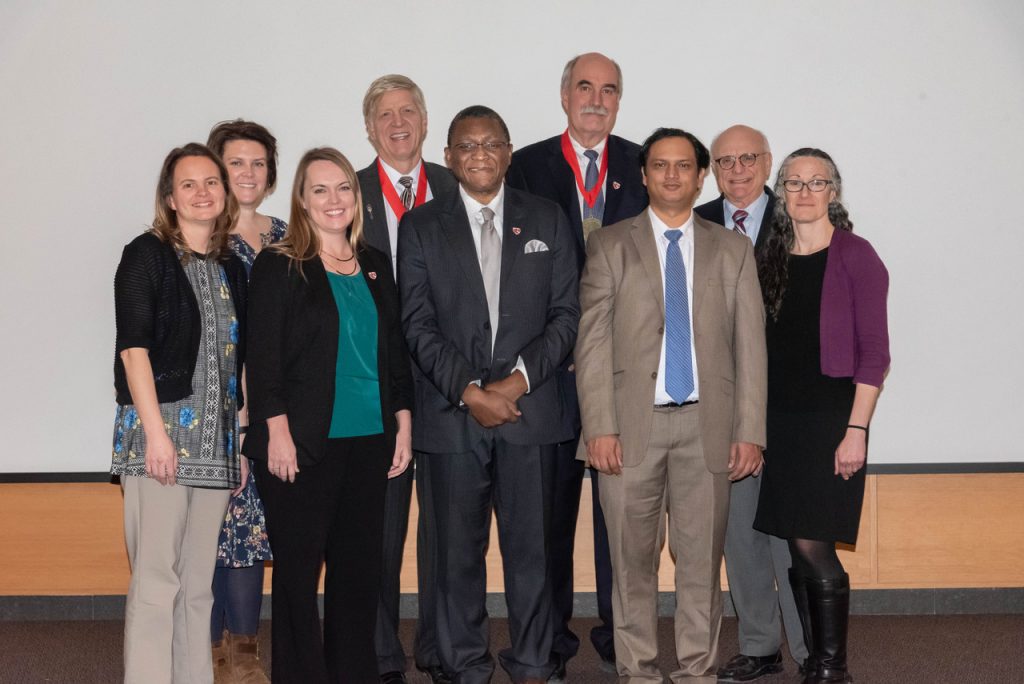
Front (left to right): Elizabeth L. Beam PhD RN, Kendra Schmid Phd MA, Dele Davis (Vice chancellor), Danish Bhatti MD, Karen Gould PhD
